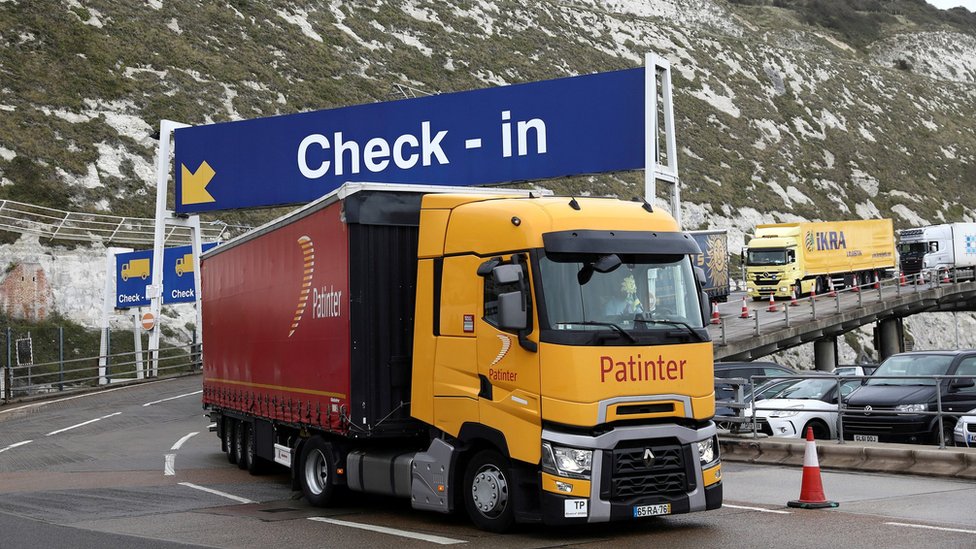
The government says "huge advances" have been made in its preparations, but businesses that trade across the border are extremely concerned.
Duncan Buchanan, the policy director of the Road Haulage Association, says he is expecting something "between shocking and a catastrophe".
And the National Audit Office said recently that, despite progress by government departments, "...it is still likely that widespread disruption will occur from 1 January 2021", with significant risks relating to Northern Ireland "and trader readiness more generally".
So what's going on?
Deal or no deal
There will be big changes at UK borders, whether or not a post-Brexit trade deal is agreed with the EU in the coming days and weeks.
A trade deal would remove the need for tariffs (or taxes) to be paid on goods crossing borders.
But from 1 January, goods entering the EU from Great Britain (England, Scotland and Wales - Northern Ireland is a different category) will face large amounts of new paperwork and checks.
That includes customs declarations, rules of origin checks, product safety certificates, food inspections and more.
Hauliers will also need to make sure they have the right transportation paperwork before they proceed to border ports.
There is particular focus on what is known as the short straits route between Dover and Calais, and the nearby Channel Tunnel, which taken together handle about four million lorries a year.
And businesses that rely on trade across the border dismiss suggestions that fears of disruption are being overblown.
"This is the biggest imposition of red tape that businesses have had to deal with in 50 years," says William Bain from the British Retail Consortium.
Phasing in checks
Last summer, the government decided not to seek an extension to the transition period, despite fears of disruption.
But in response to the devastating impact of the Covid crisis on most businesses, it chose to delay by six months the imposition of full controls on goods entering Great Britain from the EU.
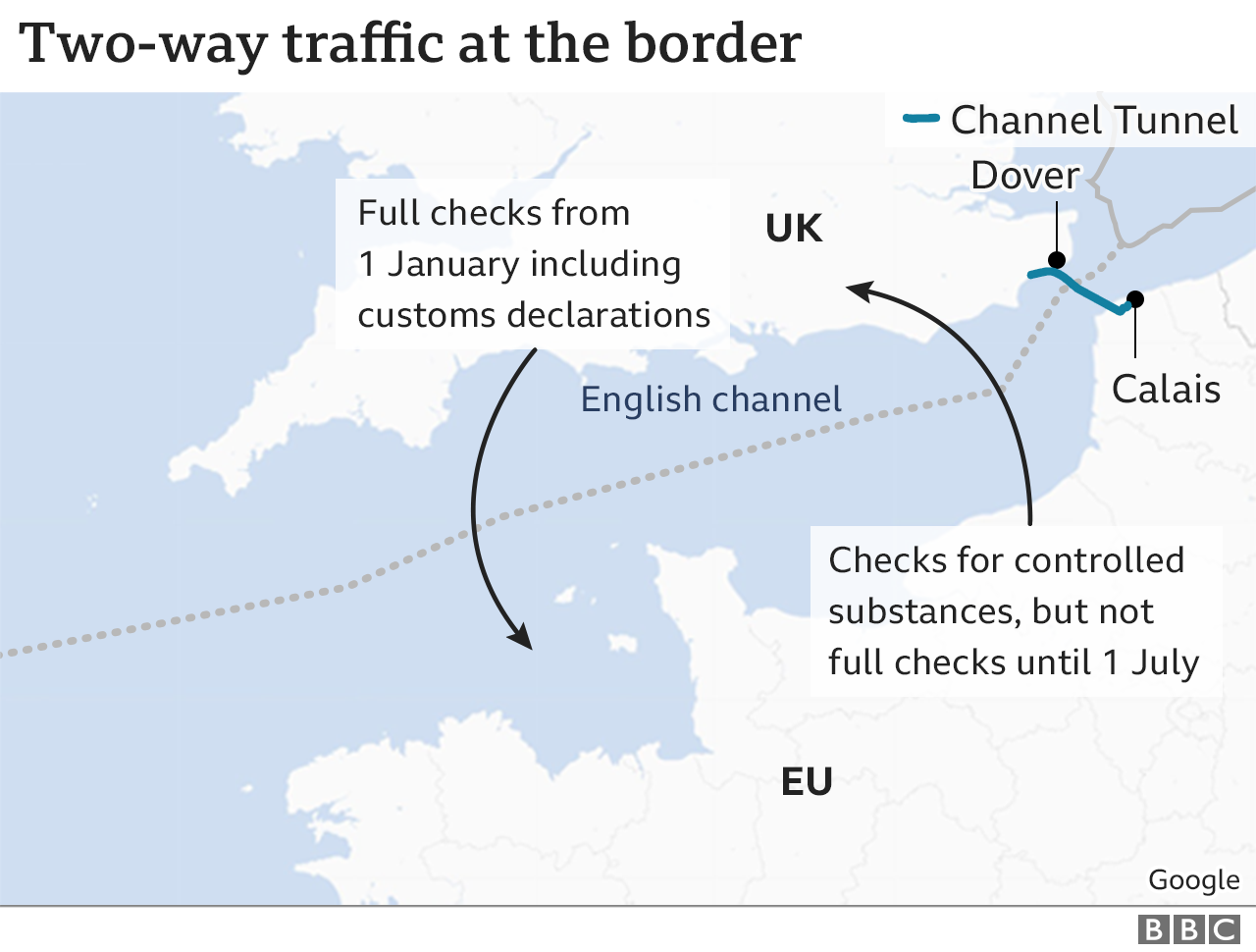
There will be checks from 1 January on controlled substances such as alcohol and tobacco, and traders deemed to be a risk will also be asked to fill in customs declarations. But the majority of checks will be delayed until 1 July, a deadline that could in theory be extended.
"I think we will want to monitor it," the chief executive of HM Revenue and Customs, Jim Harra, told MPs last week. "Hopefully we will not still be in a situation where Covid-19 is consuming as much of people's attention."
Access permits for Kent
The government hopes the delay in imposing most import controls will help limit disruption. But it is still taking no chances.
It has plans to divert some trade to other ports around the country, and it is building huge lorry parks in Kent to try to avoid long queues on motorways.
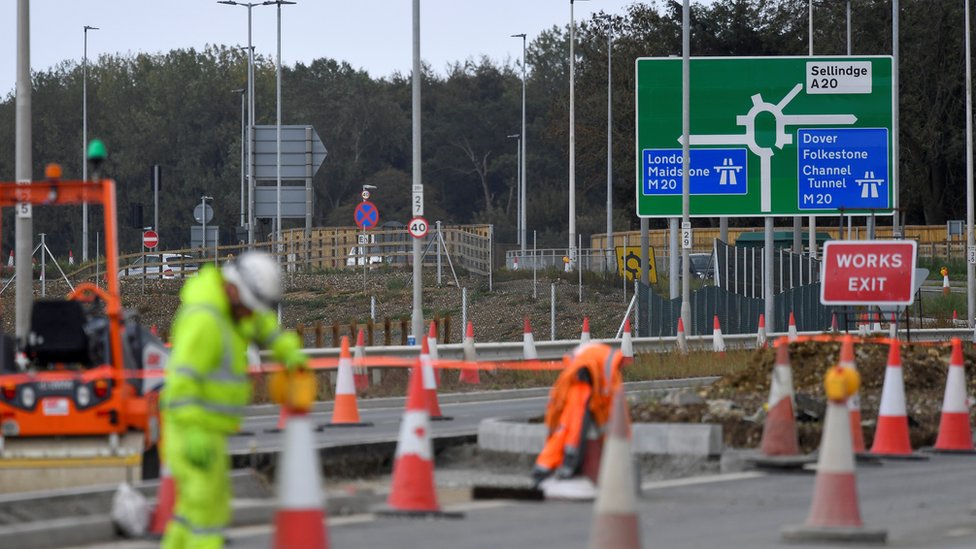
Drivers of lorries weighing more than 7.5 tonnes will also need to acquire a Kent Access Permit before they enter the county. They will have to show that they have all the paperwork they need to ferry goods to Europe.
But that doesn't deal with the challenge of the thousands of vans that cross the Channel every week. It's not clear how well prepared they are for a new import-export system.
"What has been serially misunderstood by various parts of government is the scale of the complexity for people on the ground dealing with the paperwork," says Duncan Buchanan.
That could mean that instead of queues on motorways, many traders won't be able to leave their depots.
"Either they won't be able to get vets to sign off on their meat exports, or they won't be able to get their permit because they don't have the right bits of paper," says Shane Brennan, chief executive of the Cold Storage Federation.
"We might see a quite significant holding off of trading - people just not moving stuff in the first few weeks."
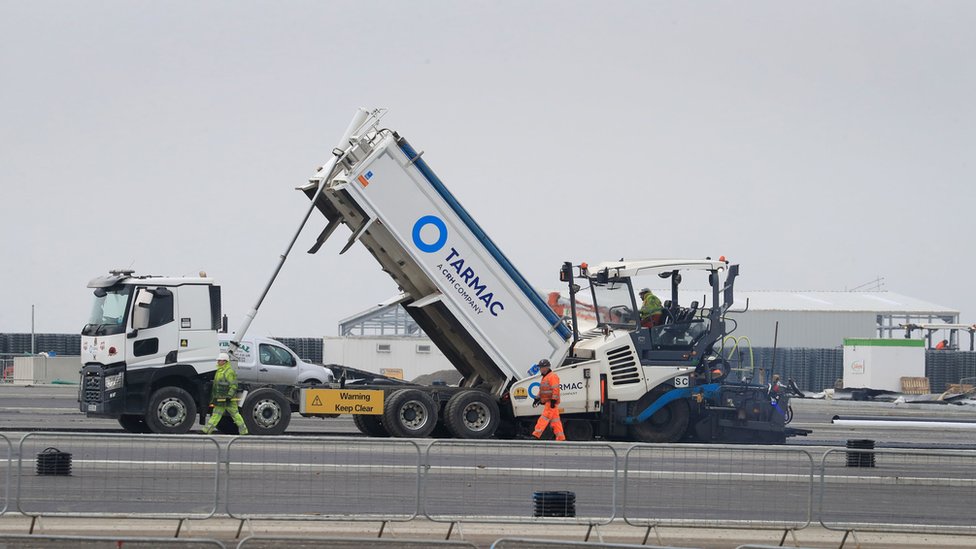
Eighty-five per cent of the volume of trade between the EU and Great Britain is carried by EU hauliers, who are often paid not by the hour, but by the kilometre. If they think there will be too many delays, many in the industry wonder whether they will simply not come.
The government says the readiness of traders to deal with the new system remains its biggest concern.
"The sheer scale of the overall operation means there are literally many millions of moving parts," permanent secretary of the cabinet office Alex Chisholm told MPs last week. "Inevitably there are going to be some difficulties for some individual people as they adjust to the new regime."
The government says it is "urging business owners to make their final preparations before new rules come into force" and it has now announced a new Border Operations Centre as part of its plans "for the UK to have the world's most effective border by 2025".
Food supply
Many questions have been asked about how changes at the border might affect the supply of food. The short answer is no-one can say for sure. About 30% of all the food consumed in the UK is imported from the EU.
The challenge is exacerbated because in January and February the UK grows relatively small amounts of fruit and vegetables. The winter months are when it is most dependent on supplies from southern Europe. So, if there are delays, they could cause some shortages on the shelves.
"Some gaps are possible but we're not going to run out of food - that's not going to happen" says Ian Wright, chief executive of the Food and Drink Federation, who adds that if there was no deal, and tariffs were imposed, things would become difficult for a while.
When it comes to non-perishable items, there has been an element of stockpiling to prepare for transition.
"The crunch point is probably not going to be in the first few days or weeks of January," William Bain argues. "Towards the end of the month, when new orders start being placed and delivered, we will start to see the processes in Kent and the other ports really tested."
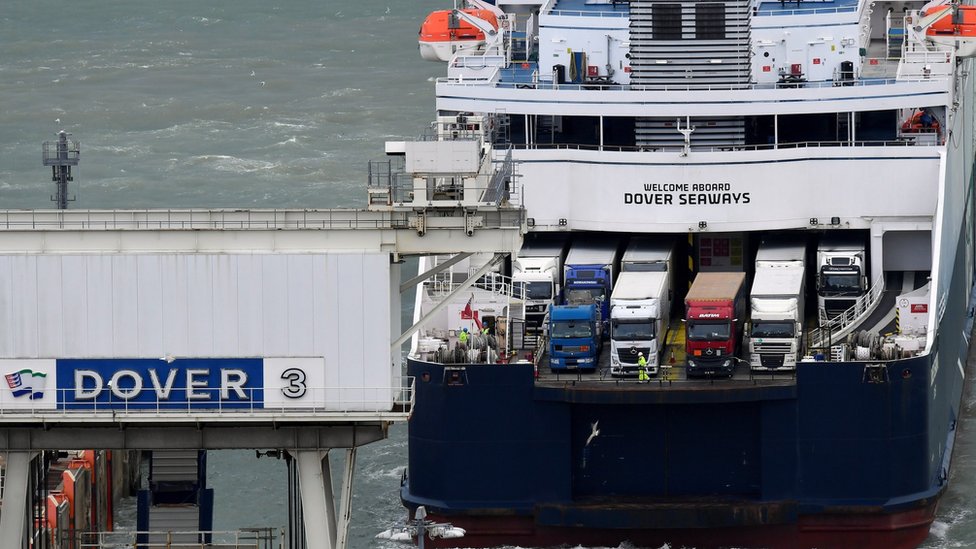
But it's not only about food. Other retailers, which are used to moving their stock freely around the EU customs union are now having to create separate supply chains for the UK, which is costing them more money.
Northern Ireland's border
Finally, many traders and businesses are worried about what will happen in Northern Ireland. It will be treated differently under the terms of
the Northern Ireland protocol in the Brexit Withdrawal Agreement.Depending on the outcome of the current trade negotiations, and separate talks in a Joint UK-EU committee, tariffs may have to be paid on certain goods moving within the UK from Great Britain to Northern Ireland, if they are deemed to be "at risk" of moving on to the Republic of Ireland in the EU.
"A massive amount of food for Northern Ireland comes across from GB and right now no-one - literally no-one - knows all the rules and procedures under which that trade will be conducted," says Ian Wright. "And that makes it all but impossible to know if you can trade profitably, or even how you can trade."
For many retailers, this is their biggest concern. Even if there is a trade deal and tariffs can be avoided, full checks will have to take place on goods from 1 January, and businesses say the system simply isn't ready.

The EU has strict rules on products of animal origin: meat, milk, fish and eggs.
These products must enter the single market through a border control post where paperwork is checked, and a proportion of goods are physically inspected.
Concern about the issue even prompted a rare joint intervention from political rivals: the Northern Ireland First Minister Arlene Foster and Deputy First Minister Michelle O'Neill.
"It is hard to imagine a more fundamental aspect of everyday life than the purchase of daily food supplies," they wrote to the European Commission.
"Hence we would ask you to recognise how important it is that the current consideration of the detail of how the protocol will be applied takes our unique context into account."
A new customs system, which none of the traders have used before, is also being introduced for Great Britain to Northern Ireland trade, and companies still don't know what they are trying to plan for.
So, business groups in Northern Ireland are united in calling for an adjustment period - another transition in all but name - to give them more time to get ready.



World - Latest - Google News
December 01, 2020 at 08:41AM
https://ift.tt/3lq14uH
Brexit: Will the borders be ready? - BBC News
World - Latest - Google News
https://ift.tt/2SeTG7d
Bagikan Berita Ini














0 Response to "Brexit: Will the borders be ready? - BBC News"
Post a Comment